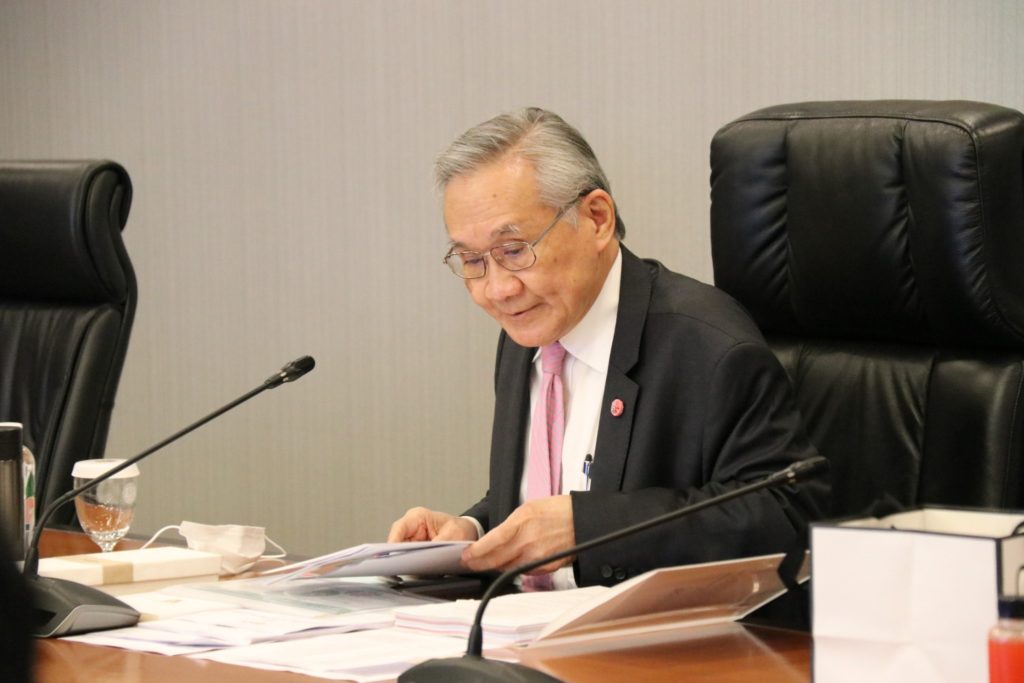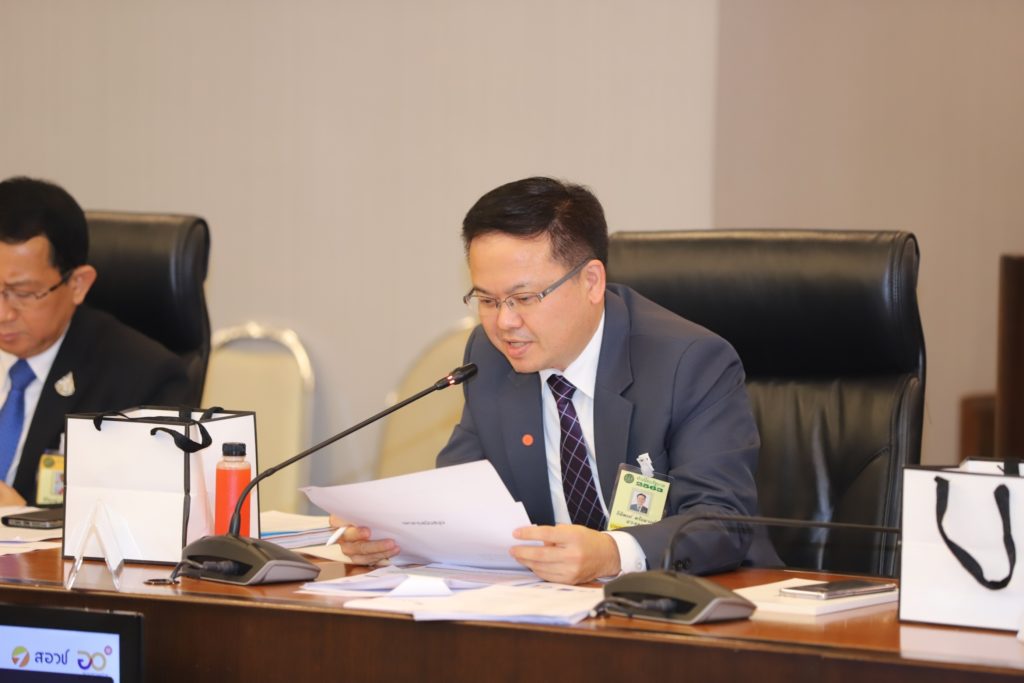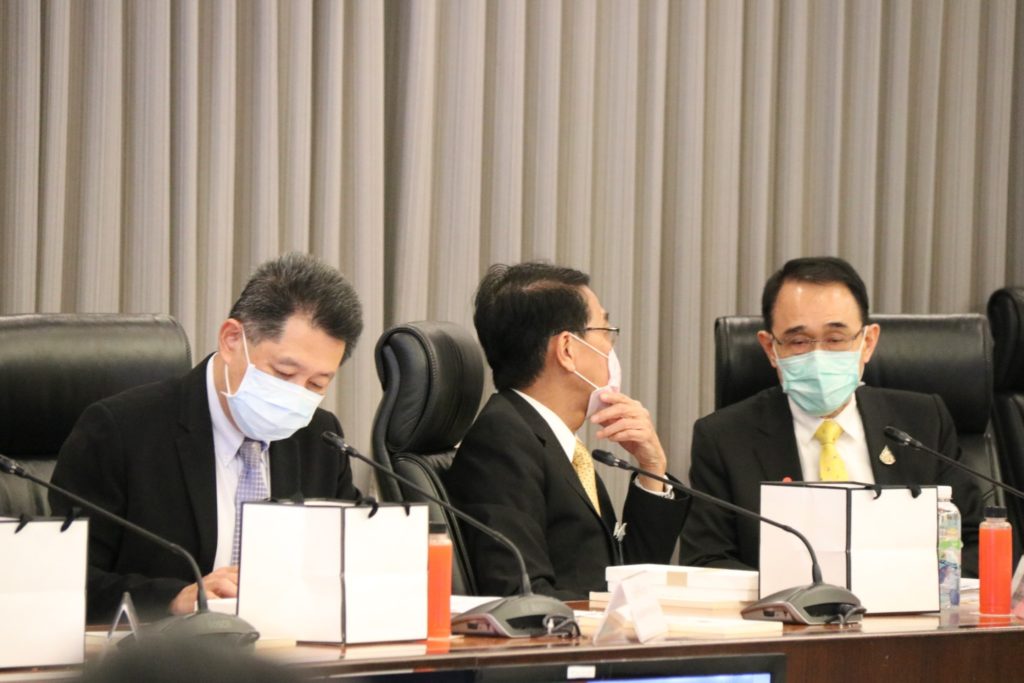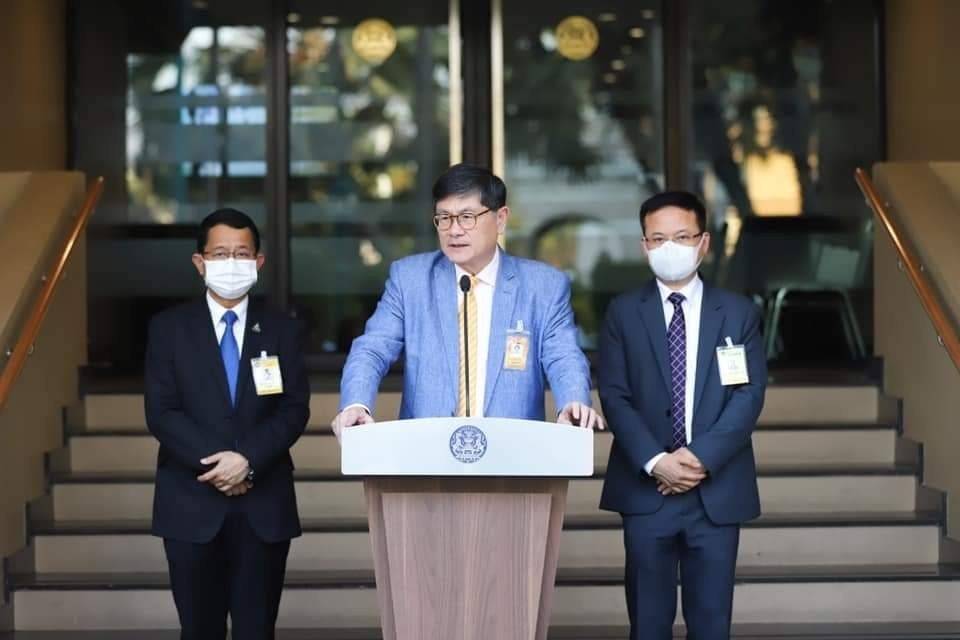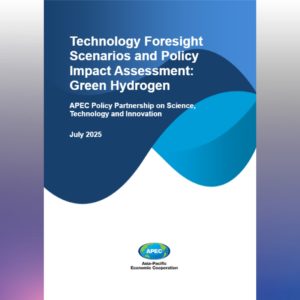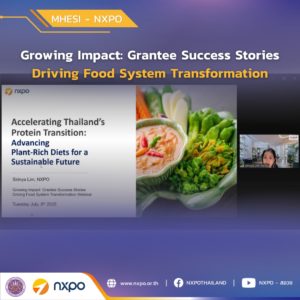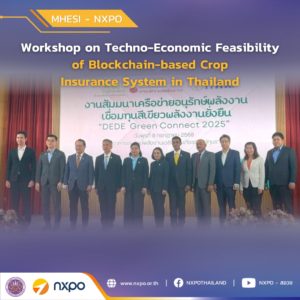
The National Higher Education, Science, Research and Innovation Policy Council (Policy Council) convened on 4 February 2021 at the Government House. The meeting was chaired by Deputy Prime Minister Don Pramudwinai, with Deputy Prime Minister Wissanu Krea-ngam and MHESI Minister Anek Laothamatas serving as Vice Chairs. The meeting deliberated on a number of agenda items as outlined below.
FY 2022 Higher Education Budget
The meeting approved 117.88 billion THB fund for FY 2022 higher education budget. Of this fund, 60% will be allocated to personnel budget, 33% to operation and 7% to capacity building. Along with the budget, the meeting also approved the performance-based budget allocation and management system, all of which will be submitted to the Cabinet for further approval.
BCG National Agenda, The HESRI Role in the COVID-19 Situation Management and Progress on Nuclear Development
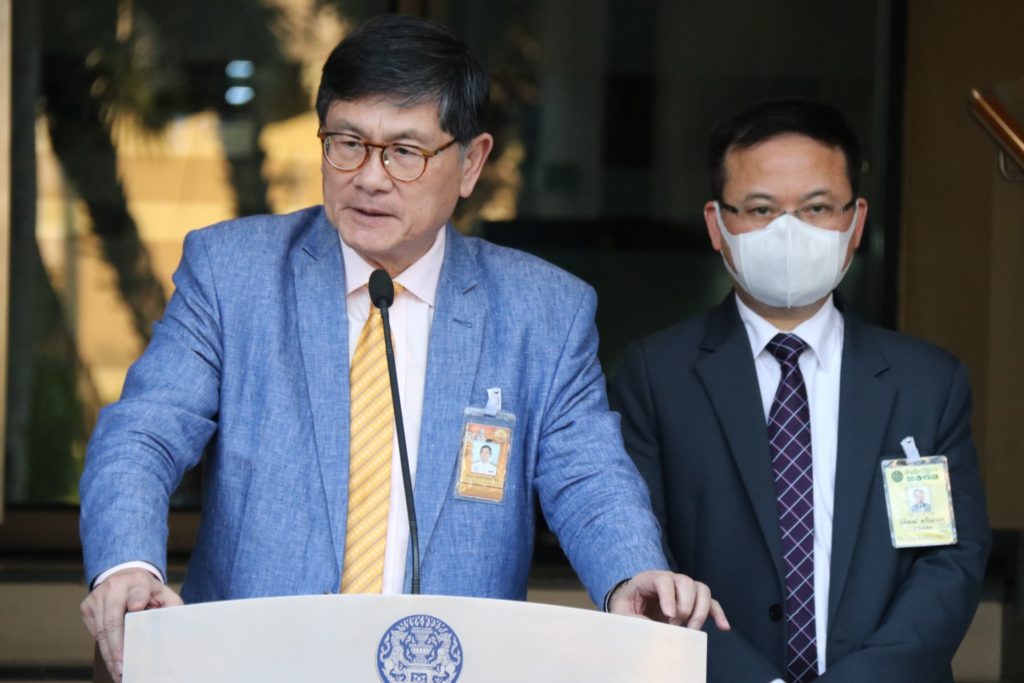
Minister Anek reported that on 19 January 2021, the Cabinet endorsed the 2021-2026 Bio-Circular-Green Economy (BCG) Strategic Plan and declared BCG a national agenda. Formulated by the National Science and Technology Development Agency (NSTDA) on behalf of MHESI, the 5-year plan consists of four strategies: 1) promoting sustainability of biological resources through balancing conservation and utilization, 2) strengthening communities and grassroots economy by employing resource capital, creativity, technology, biodiversity and cultural diversity, 3) Upgrading and promoting sustainable competitiveness of Thai BCG industries and 4) building resilience to global changes. BCG will be among top agenda at the Asia-Pacific Economic Cooperation (APEC) Summit to be hosted by Thailand in 2022.
Since the re-emergence of COVID-19 in Dec 2020, agencies under MHESI, including universities, have been supporting the work of field hospitals across the nation, administering 70,000 COVID-19 tests/week, donating medical equipment and supplies to hospitals and health facilities, developing innovations of locally manufactured products to fight COVID-19 and helping health authority with the monitoring, analysis and publication of data related to COVID-19 situation.
Thailand Institute of Nuclear Technology (TINT) made significant progress on the 2018-2037 Nuclear Technology Infrastructure Development Plan as follows: 1) the installation of a tokamak, under the collaboration with China to support plasma and fusion technology development, is in progress and expected to complete in 2021, 2) the development of cyclotron, in collaboration with Russia, is in progress and expected to finish in 2021 and 3) the development of the 2nd research reactor is at the Environmental and Health Impact Assessment (EHIA) stage.
Higher Education Establishment
Prof. Sirirurg Songsivilai, MHESI Permanent Secretary, presented the plan to establish the Higher Education Fund. The fund will be used toward the creation of high quality graduates to support the national development, drive the growth of new industries, develop scientific and educational excellence and encourage lifelong learning. The policy council approved the proposal in principle and tasked MHESI to submit the proposal to Ministry of Finance and the Cabinet for final approval.
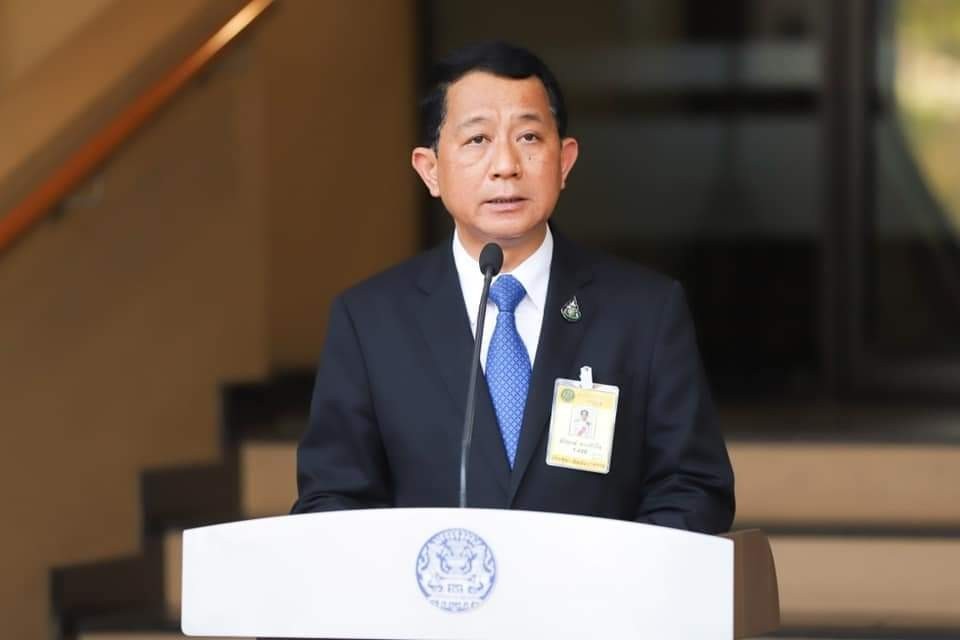
The Use of FY 2020 Science, Research and Innovation (SRI)
The meeting took note of the use of SRI fund in 2020. The fund was utilized for research and innovation development in various aspects. In fighting against the COVID-19, a number of innovative solutions have been created such as COVID-19 test kits, PPEs, N95 masks and ventilators. Competitiveness in agricultural and industrial sectors have been enhanced through research and innovation projects, for instance the laser treatment for skin pigmentation disorder, Genomic Thailand network, postharvest technology, battery recycling, zero waste project, and PM2.5 mitigation. The fund also supported grassroots economy development to employ research and innovation to upgrade community products and services and uplift villagers’ quality of life in communities throughout Thailand.
Government Procurement Process
The meeting discussed the need to create a vibrant innovation ecosystem, particularly on the government procurement process which should be made conducive and friendly to research and innovation development. The Policy Council approved in principle a new procurement regulation as proposed by an ad-hoc committee in charge of designing procurement regulation to support research, development and innovation and tasked NXPO to forward the new regulation to the national public procurement committee for consideration and implementation.

